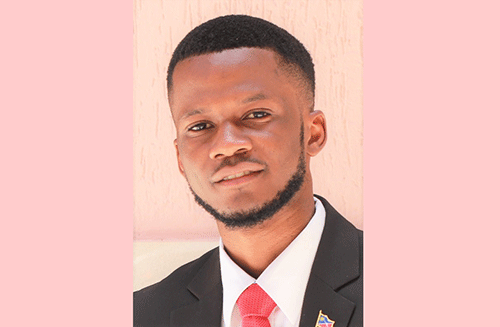The notion that a president should be blessed or receive holy communion from the church before assuming the nation’s highest office is not a misnomer. What does this signify for an incoming president in terms of religion, politics and the economy?
Despite its Western roots, it is no coincidence that Africans also observe this tradition. Many interpret it as the president’s attempt to establish their spiritual identity, and publicly affirm their religious beliefs and principles. Communion is believed to invoke God’s favour and grace for the leader’s endeavours.
It serves as a means of imploring God for assistance in making difficult decisions, administering justice, and guiding the nation with compassion and wisdom.
Overall, these customs are not forbidden, but reflect a cultural commitment to integrating religion and politics.
Namibia, as a sovereign, secular, democratic and unitary state, is bound by Article 19 of its constitution, which entitles everyone to enjoy, practice, profess, maintain, and promote any religion, provided that they do not infringe upon the rights of others or the national interest. This indicates that she will guide us not only through her visionary insight but also by faith.
Pattern
President-elect Netumbo Nandi-Ndaitwah marks the first female president in Namibian history, exemplifying the country’s commitment to gender equality.
Many—if not all—hold high expectations for what she will bring that differs from her predecessor to improve the lives of the people, especially given the spiritual blessings of holy communion she has received. First, in terms of leadership style, each president has displayed a unique style that can be characterised as both sweet and bitter.
To begin, the founding father bore the immense burden of establishing a new government, institutions, and infrastructure, all of which fell on his shoulders.
Crucially, he projected the national vision known as “Vision 2030.” His leadership style can be classified as “transformational” because he had the courage to lead Namibia to independence after colonial domination.
Second, former president Hifikepunye Pohamba was determined to fortify and expand upon the framework established by his predecessor. He devoted much of his attention to driving significant undertakings like the National Housing Project.
To address the 2008 unemployment crisis, he also implemented policies such as the Targeted Intervention Programme for Employment and Economic Growth (TIPEEG) in 2011.
The programme aimed to create 104 000 direct and indirect jobs between 2011 and 2014.
However, when the project concluded in 2014, it was found to have created only 83 000 jobs, of which 15 829 were permanent.
The National Housing Project and TIPEEG faced criticism regarding government spending and corruption.
Despite this, his commitment to maintaining peace and stability earned him prestigious awards, including the Mo Ibrahim award, making him the first recipient in Namibia.
His leadership style can be described as “bureaucratic leadership” due to his focus on preserving the country’s peace and stability.
Third, late president Hage Geingob declared a Harambee prosperity plan for the country on his inauguration day. This detailed framework speaks volumes about some of his developmental agendas during his tenure. He is known for slogans such as “Namibian House” and “pulling in one direction.”
Although he did not complete his leadership term, he championed several key mega projects, including the Green Hydrogen Project. His style of leadership is often seen as “egalitarian” due to his inclusive approach.
Fourth, President Nangolo Mbumba should not be faulted for not being described as his predecessor due to his succession following the death of Geingob.
Nevertheless, even in completing his predecessor’s term, one might characterise his leadership style as “situational leadership.”
His aptitude for finishing what was started, along with his ability to ensure a smooth transition and his willingness to willingly relinquish power with a smile, is rare in many African countries.
All eyes
Lastly, all eyes and ears are on the fifth president, Nandi-Ndaitwah. She can be described as someone who has been tried and tested at all levels of government since 1973.
Known as an “internationalist,” she understands both domestic and international affairs. Her extensive experience in various ministerial portfolios can be regarded as substantial, but bearing the weight of an entire nation is no small feat.
She is at the forefront of the last leg of the National Development Plan (6), which necessitates a deep understanding of major national priorities and the urgency of addressing pressing national issues.
Given the national frameworks at hand, her role should focus less on planning and more on executing solutions to address pressing challenges such as unemployment, housing, poverty, inequality, and supporting local SMEs while attracting foreign direct investment to bring the realisation of Vision 2030 closer.
* Tio Nakasole holds an Economics Honors degree, is a final-year MBA student, and works as a Research Analyst at MONASA Advisory and Associates. The views expressed here do not represent those of his employer.



